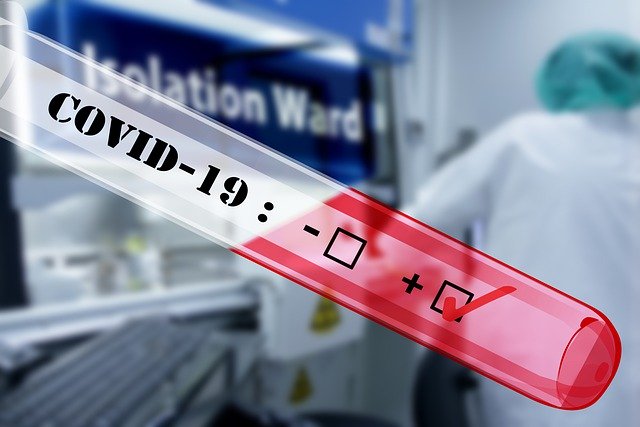The COVID-19 pandemic has spread all over the world, affecting millions of people. Some show symptoms of COVID-19. To know whether a person has COVID-19 or not, he or she must undergo rapid testing for COVID-19.
Health care professionals use different COVID-19 testing kits. Different medical developers in the USA developed multiple testing kits, which includes the Coronavirus COVID-19 IgM ELISA Assay Kit.
COVID-19 and its symptoms
Coronavirus is a big family of viruses that can affect humans and animals. This virus can affect the respiratory function of the human body if infected. The virus can develop common cold and other severe diseases like Severe Acute Respiratory Syndrome (SARS) and Middle East Respiratory Syndrome (MERS).
The latest disease that Coronavirus developed is the COVID-19. The disease originated in Wuhan, China, and has now affected millions worldwide. The following are the most common symptoms of COVID-19:
- Fever
- Cold
- Dry Cough
- Tiredness
- Nasal congestion
- Diarrhea
- Sore throat
The symptoms mentioned above are the mild symptoms for COVID-19, which begins mild and gradually develops into something severe. Some recover from these symptoms without hospitalization. However, others become critically ill and have difficulty in breathing.
The most vulnerable people who can contract the disease are the elderly and people who have underlying medical problems. These medical problems include heart problems, lung problems, diabetes, and cancer. However, those with mild symptoms can transmit the disease to other people.
Coronavirus COVID-19 IgM ELISA Assay Kit
The enzyme-linked immunosorbent assay (ELISA) is a biochemistry assay that detects proteins, peptides, hormones, and antigens from test samples. Detection is achieved by assessing the conjugated enzyme activity. The most crucial element in detection is the antigen-antibody interaction. ELISA assay uses the microplate-based enzyme immunoassay technique.
The pathogenic strains developed by coronaviruses cause respiratory infections, which are associated with MERS, SARS, and COVID-19. Thus, having an ELISA testing kit is most useful for studying coronaviruses.
The ELISA kit was developed, designed, and produced to detect not recombinants, but native COVID-19. This test detects IgG antibodies that patients develop within seven to 10 days after symptoms of COVID-19 begin.
These antibodies can also indicate that the patient has had COVID-19 in the past. The antibodies are proteins produced by the immune system as a response to an infection, which is specific for that certain infection.
The kit uses human serum as samples because the antibodies are found in the liquid part of the blood specimen. Samples include undiluted body fluids, secretions, and tissue homogenates. It binds and recognizes COVID-19 IgG antibodies.
Testing
Store the kit at 2-8 degrees Celsius. Healthcare professionals should use the COVID-19 IgG/IgM Antibody ELISA kit for two hours to detect the COVID-19 IgG/IgM Antibody. The kit is for research purposes only. One should not use the kit for diagnostic and therapeutic purposes.
Only trained healthcare professionals, who are laboratory technicians, can utilize the ELISA testing kit. They will measure the interaction of the antigens and antibodies of the patient. They will also inform the doctor of the result of the test.
People who want to get tested using ELISA kit do not need to prepare for anything. The test is generally not painful unless there is pain during blood extraction. The blood sample will be sent to the laboratory for analysis.
The lab technician will check the patient’s blood containing antibodies to the antigen. This process is done by adding an enzyme to the petri dish and observing how the antigen and blood would react. If the contents change color, then the patient might have a condition.
The risks associated with the ELISA testing kit are generally rare and are mostly blood-related, such as vessel damage and extraction infection. The patient might feel dizzy afterward. The test result can come out within 24 hours, depending on what the test was for. However, some test results may take days or weeks before coming out.
Understanding the result
For COVID-19, a positive result may indicate that the patient currently has the disease or has previously contracted the disease. The presence of IgM may suggest that the infection happened within the last few weeks. It may also suggest that the patient is infectious. Having a nasopharyngeal swab test may confirm if the patient is infectious.
A negative result means that the patient does not have COVID-19. A negative can also happen if the test was done early in the illness and the patient’s body did not have time to produce the antibodies. This result can mean that the patient still has COVID-19.
False negatives and false positives can occur. A false-positive result would indicate that the patient has a condition when he doesn’t. On the other hand, a false-negative result indicates that the patient does not have a condition when he does. A repetition of the test might be required.
Takeaway
COVID-19 is the pandemic that took people by surprise. Thus, it is important to be aware of the surroundings and feel if something is different about your body. If you have symptoms, check with a medical professional. Always remember to wash your hands and avoid unnecessary travels.



![Keto Start ACV Gummies Reviews [Scam Or Legit] – Shocking Fake Reports Revealed?](https://marylandreporter.com/wp-content/uploads/2022/05/KetoStartACVGummies-440x264.png)


Recent Comments